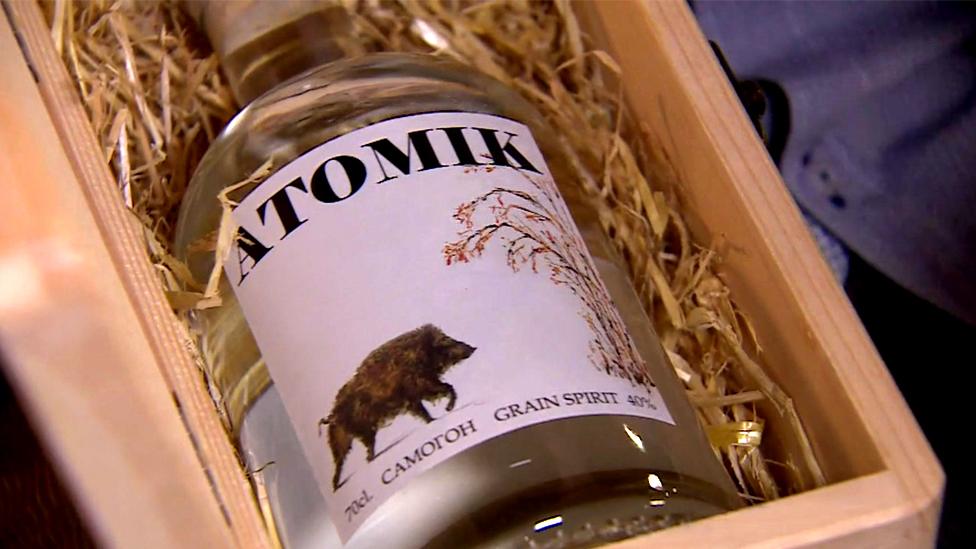Chernobyl alcohol drink seized by authorities
- Published
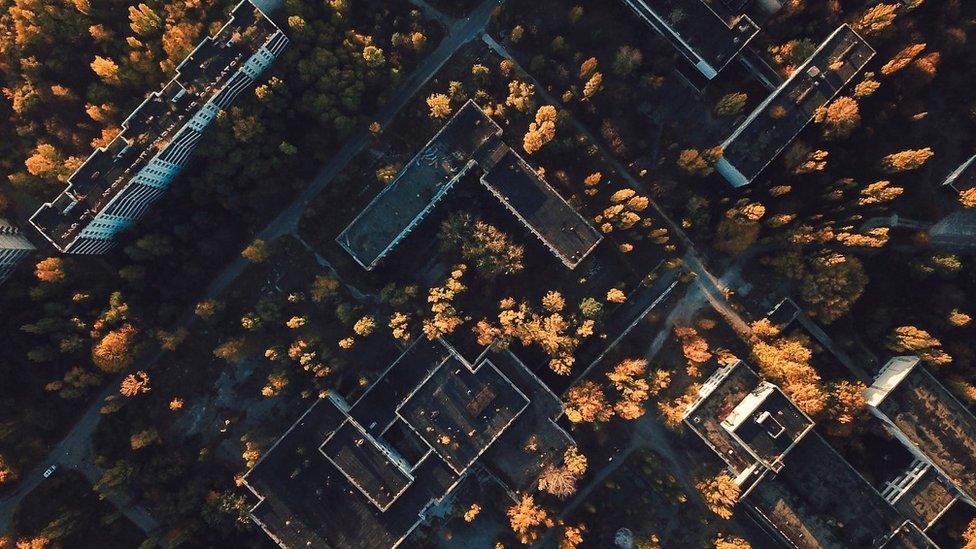
An area of 4,000 square kilometres around the nuclear power plant was abandoned after the 1986 disaster
The first bottles of an "artisanal spirit" made using apples grown near the Chernobyl nuclear power plant have been seized by Ukrainian authorities.
The Chernobyl Spirit Company said 1,500 bottles of Atomik alcoholic drink were confiscated on 19 March and taken to the Kyiv Prosecutor's office.
Officers took the shipment from a truck at a distillery in the Carpathians.
The spirit, its producers say, is Chernobyl's first consumer product since the 1986 nuclear disaster.
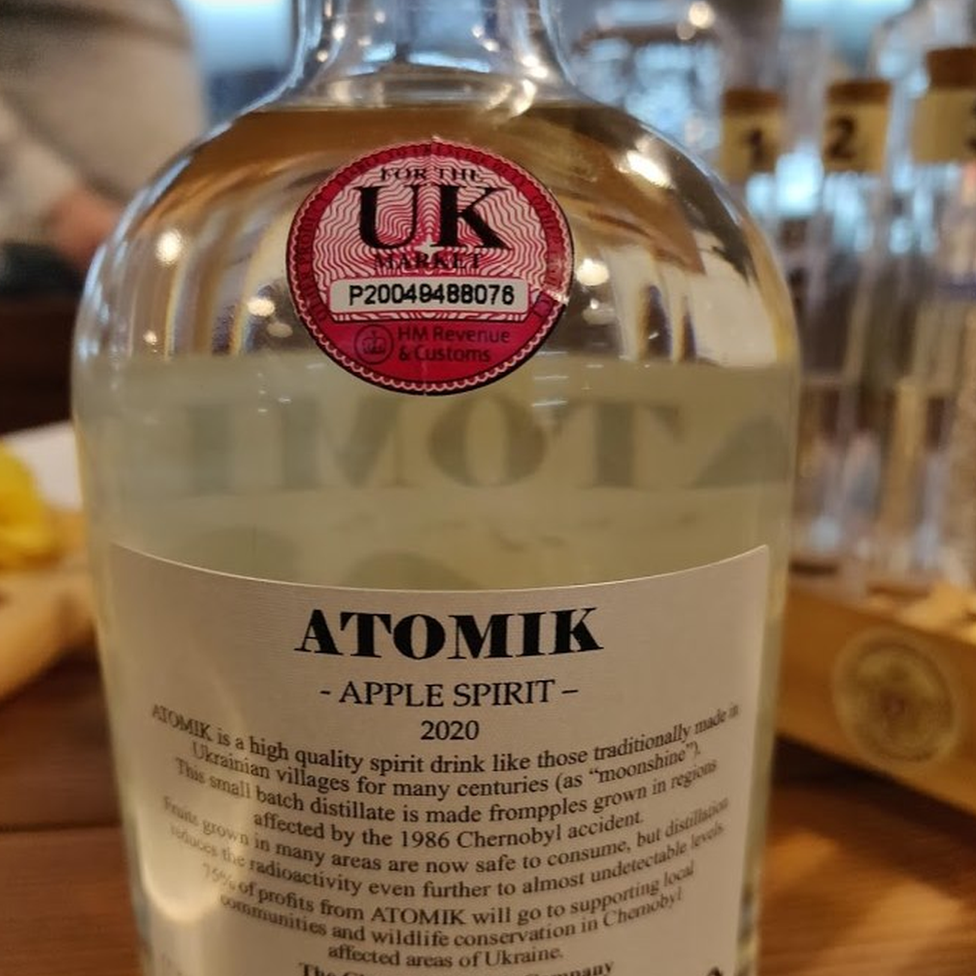
They are now awaiting the outcome of an investigation by the Ukrainian security services but say they have "no idea" why the shipment, which was destined for the UK, was seized.
"It seems that they are accusing us of using forged Ukrainian excise stamps," explained Prof Jim Smith, a scientist who has spent many years studying the exclusion zone before setting up the Chernobyl Spirit Company with Ukrainian colleagues. "But this doesn't make sense since the bottles are for the UK market and are clearly labelled with valid UK excise stamps."
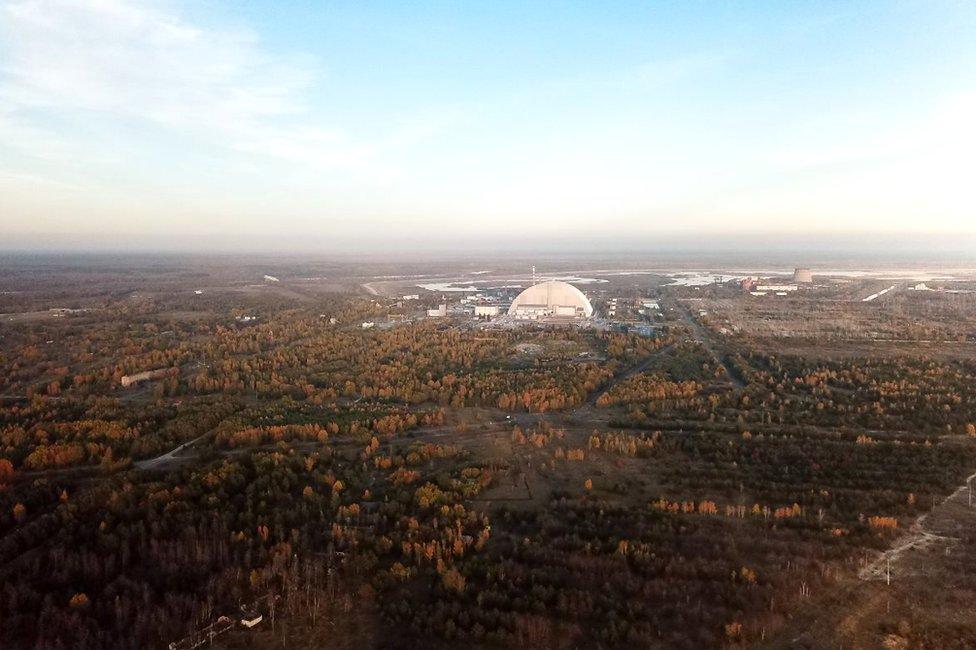
The social enterprise company that makes Atomik is run by scientists who work in the 4,000 square kilometre Chernobyl exclusion zone - an area abandoned after the catastrophic 1986 nuclear disaster. Their studies have included growing experimental crops to find out if grain, and other food grown in the zone, could be used to make products that are safe to consume.
Part of the reason for producing the spirit was to demonstrate how land around the exclusion zone could be put back to productive use. The researchers say this could allow communities there to grow and sell produce - something that is currently illegal on "officially contaminated land".
When we tasted the first Atomik vodka martini in 2019, Prof Smith, who is based at Portsmouth University, explained that it was "no more radioactive than any other vodka".
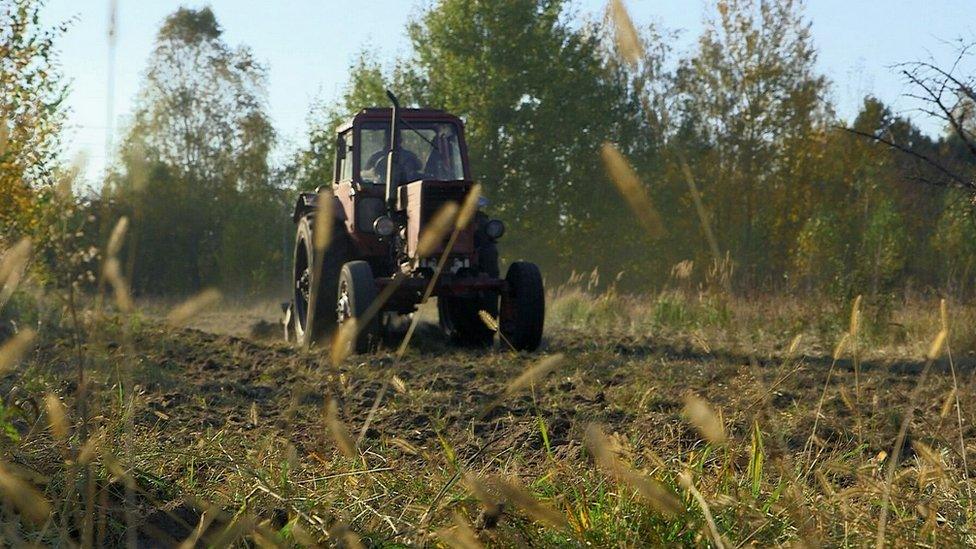
The team grew crops in the exclusion zone to see how much of the contamination they would take up
Prof Smith and his colleagues since adjusted their recipe to make an apple-based spirit. Those apples are grown in the Narodichi district - an area immediately outside the exclusion zone, where agriculture and development is still highly restricted.
The company plans to use some of its profits to help communities in Ukraine - including in Narodichi - that are still affected by the economic impact of the nuclear disaster.
BBC News contacted the Kyiv prosecutor's office for comment but, at the time of writing, has not received a response.
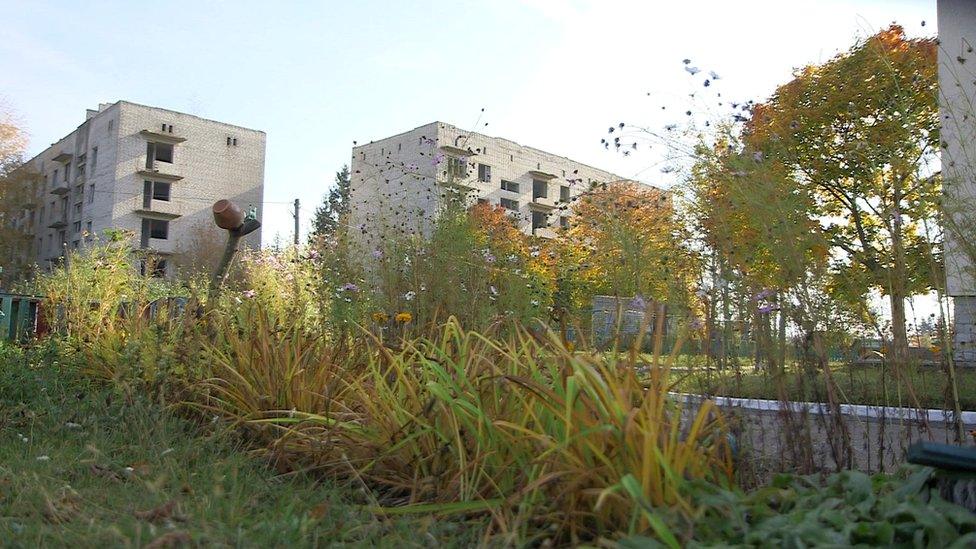
Narodichi is an officially contaminated town within the outer portion of the exclusion zone
Dr Gennady Laptev, one of the company's co-owners and a Chernobyl "liquidator" who worked there in the first weeks after the accident, said: "We hope this issue can be resolved so that we can continue our work trying to help people affected by the devastating social and economic impacts Chernobyl had on communities."
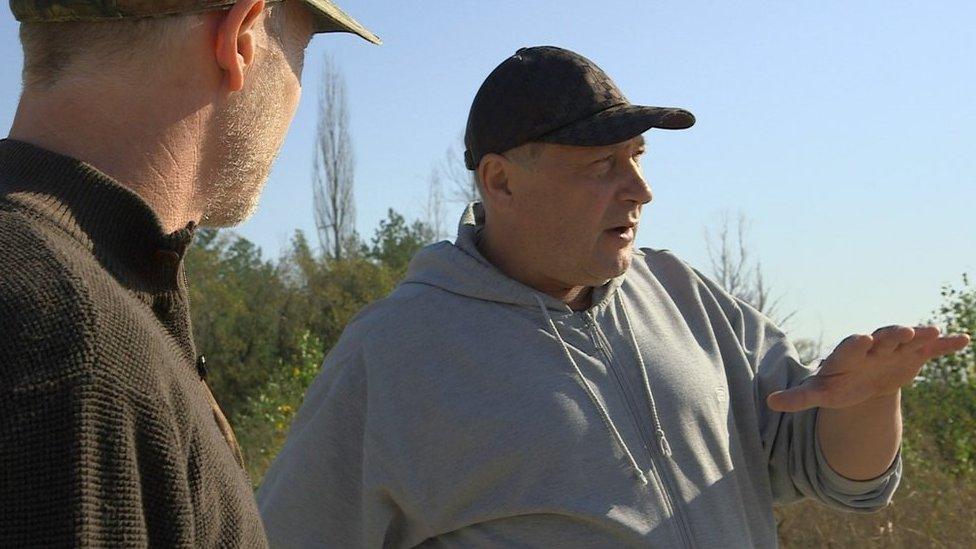
Dr Gennady Laptev (right) has worked in the Chernobyl exclusion zone since 3 months after the accident and co-founded the Chernobyl Spirit Company
Follow Victoria on Twitter, external
Related topics
- Published14 February 2019
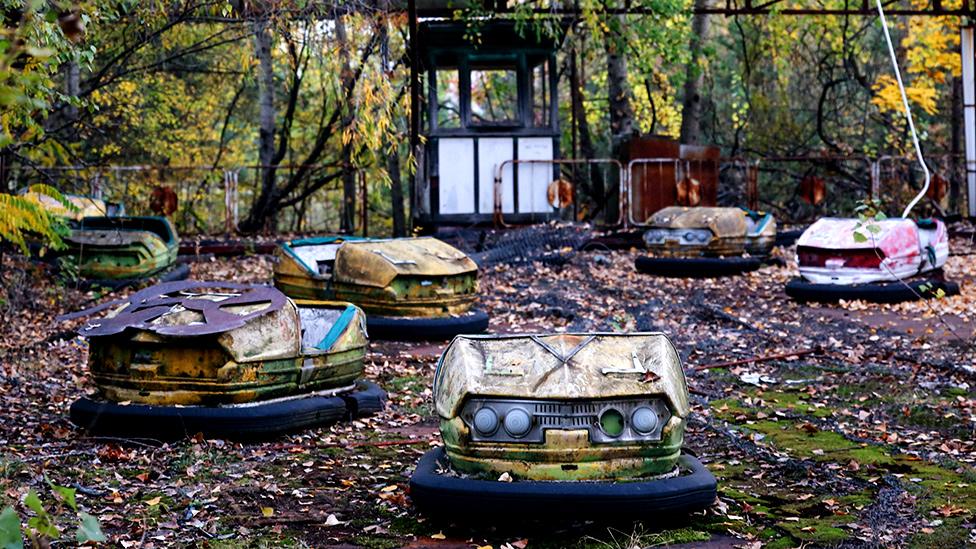
- Published8 August 2019
